Water Heater Repair: Essential Troubleshooting Tips for Lehi Homeowners
Dealing with problems related to your Lehi home's water heater can be both frustrating and expensive. Our comprehensive guide is designed to offer you valuable insights and effective solutions to common issues that may arise with your water heater. From a stubborn pilot light to an unexpected leak, we are here to provide you with practical tips and expert repair advice. Trust us to cover all your water heater problems efficiently!

How does a water heater work?
To effectively troubleshoot water heater problems, it is essential to grasp the working mechanism of this appliance. At its core, a water heater operates by receiving cold water into a tank, which is then heated either by electricity or gas. Once heated, the hot water travels through the plumbing system, ready to be accessed from your tap. Simultaneously, the tank replenishes itself as you consume hot water. Familiarizing yourself with these fundamental aspects enables you to efficiently tackle any potential concerns that might occur.


To avoid breakdowns, proper water heater maintenance is essential
Proper maintenance of your water heater is crucial for avoiding breakdowns and ensuring a consistent supply of hot water. An annual draining and flushing of the system can effectively prevent the accumulation of sediment, which ultimately helps extend the lifespan of your water heater. It is also important to regularly inspect the temperature and pressure relief valve to ensure efficient operation and maintain safety standards. By diligently following these maintenance practices, you can always count on having hot water available whenever you need it.
What are common signs a water heater
needs to be repaired or replaced?
Water heaters play a crucial role in supplying hot water when needed, but like any appliance, they have a limited lifespan. To ensure they remain in optimal condition, regular inspections are necessary to identify common issues that may require repair or replacement. Here are some indicators that may prompt you to search for "water heater repair near me":

Insufficient or no hot water: If you find yourself facing a shortage of hot water or if it runs out quickly, there might be an underlying problem with the heating element, thermostat, or other internal components that demand repair.
Inconsistent water temperature: Fluctuating water temperatures, where the water alternates between hot and cold during usage, may suggest an issue with the controls or mixing valve that necessitates attention.
Leaks: Any visible leaks around the water heater or from the pipes, valves, or connections could be a sign of a problem that requires immediate repair to prevent further damage.
Discolored or rusty water: If the hot water flowing from your taps appears discolored or has a rusty tint, it could indicate corrosion inside the water heater tank, which may necessitate a replacement.
Unusual noises: Banging, popping, or rumbling sounds emanating from the water heater could point to sediment buildup or a faulty heating element. Addressing these issues promptly can help prevent further damage.
Age of the water heater: Typically, water heaters have a lifespan of 8-12 years. If your unit is approaching or surpassing this age range and is experiencing problems, it may be more cost-effective to replace the entire unit rather than opting for repeated repairs.
Remember, by keeping an eye out for these signs and promptly seeking professional assistance from local water heater repair services, you can ensure your water heater continues to function optimally, providing hot water on demand.

What are the possible causes of water heater malfunctions?
Water heater problems can arise due to various factors, including faulty thermostats, electrical issues, or sediment build-up. Although homeowners can handle minor issues, a malfunctioning water heater might indicate more significant problems with your home's systems. To prevent unexpected breakdowns and ensure continuous heating, it's crucial to prioritize regular maintenance and remain alert to warning signs. Scheduling routine maintenance checks and promptly addressing any concerns is highly recommended. In case of uncertainty or persistent issues, seeking professional assistance is advisable. Professionals can diagnose and resolve the underlying causes of water heater malfunctions, ensuring the long-term reliability and efficiency of your water heating system.

Check the temperature setting on your water heater
When it comes to maintaining the efficiency and safety of your water heater, checking the temperature regularly is vital. It's important to strike the right balance to avoid potential hazards and unnecessary energy consumption. Adjusting the temperature correctly is a simple yet essential step that guarantees your long-term comfort and convenience. To optimize efficiency and ensure safety, the Department of Energy advises setting your water heater temperature to 120°F (49°C). By adhering to this recommendation, you can enjoy both efficient operation and peace of mind.
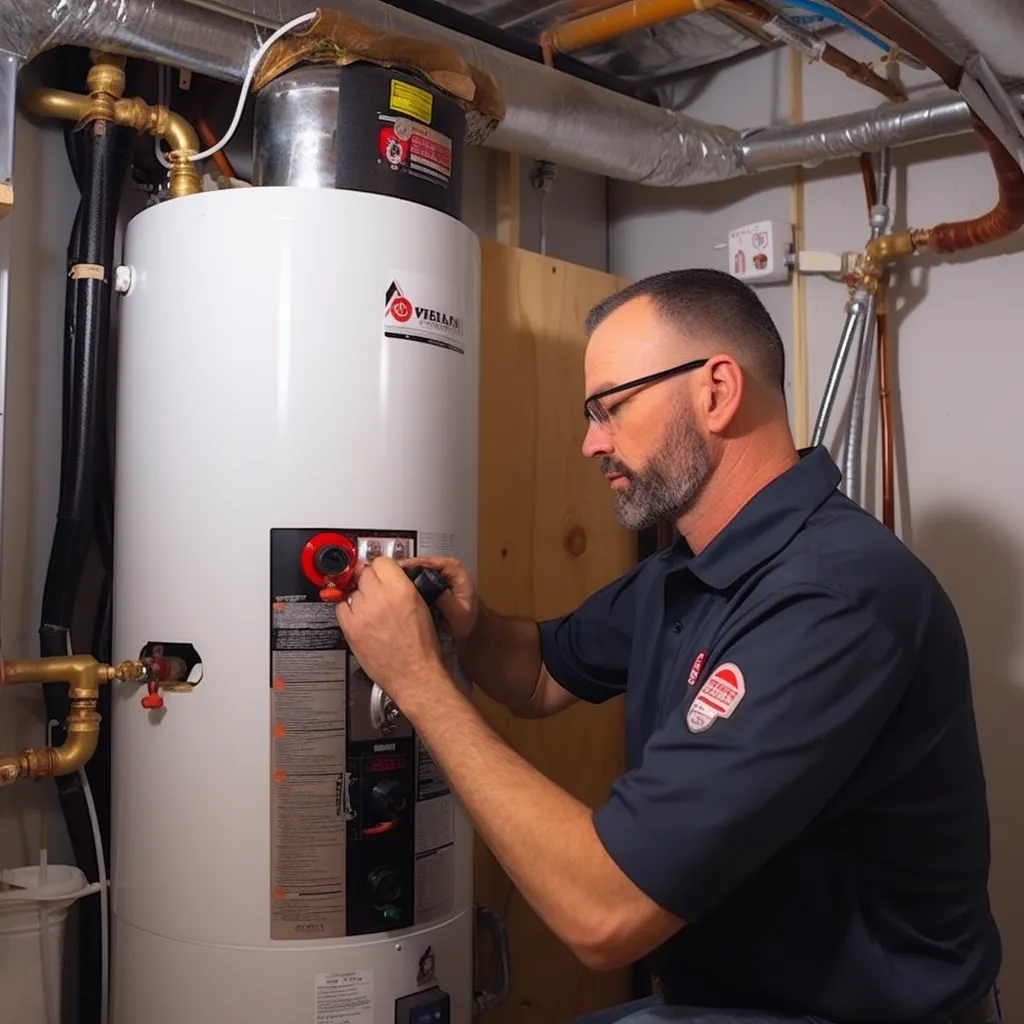

Perform regular
visual inspections
Regular visual inspections are crucial for maintaining the efficiency of your water heater and detecting potential problems early on. By conducting routine visual inspections, you can quickly identify signs of leaks, corrosion, or any unusual wear and tear. Timely addressing of minor issues helps prevent them from escalating into major complications, ultimately saving you from costly repairs or the need for a replacement. Additionally, these inspections provide peace of mind, as they ensure the safe and efficient operation of your water heater. Incorporate visual inspections into your regular home maintenance routine to keep your water heater in excellent condition and extend its lifespan.
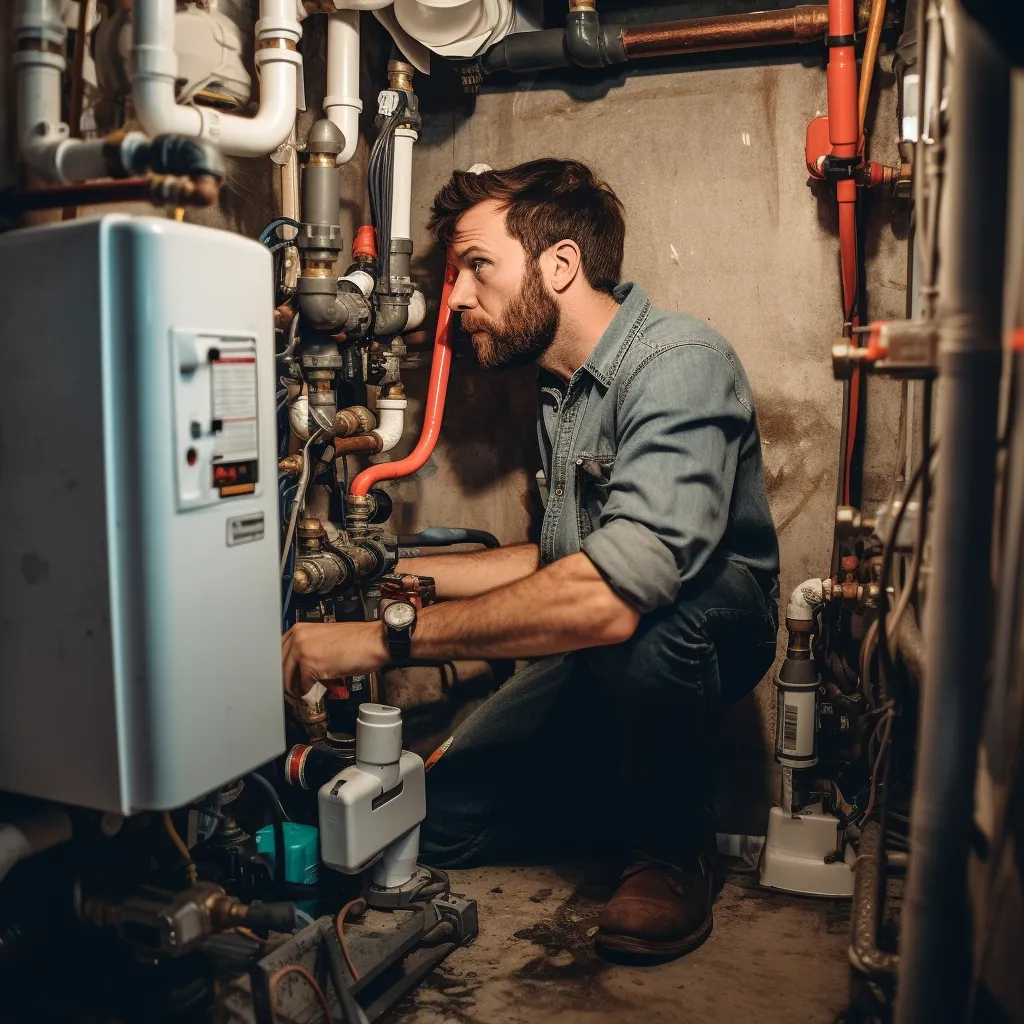
Test the water heater pressure relief valve
to make sure it works
Regularly testing the pressure relief valve of your water heater is essential for ensuring the safety and optimal performance of your water heating system. The pressure relief valve plays a crucial role in releasing any excess pressure accumulated in the tank, effectively minimizing the risk of explosions or damage to the unit. By conducting periodic tests on this valve, you can verify its functionality and capacity to alleviate pressure when required. This simple maintenance routine is a proactive measure that helps you avoid potential hazards and prolong the lifespan of your water heater.

Check for signs of rust and corrosion
around the water heater tank
Regular inspections of your water heater tank play a crucial role in preventive maintenance and reducing the chances of leaks and accidents. While rust and corrosion might not be immediately apparent, neglecting them can lead to significant problems. To ensure your water heater receives the necessary care, make these inspections a priority. By promptly identifying and dealing with rust or corrosion, you can prevent potential leaks and prolong the lifespan of your water heater. It's important to note that addressing rust and corrosion should be left to professionals. If you notice any indications of rust or corrosion during your inspection, it's advisable to seek assistance from skilled experts.

Water heater connections should be tight and secure
Regular inspections of your water heater tank are vital for effective preventive maintenance and reducing the likelihood of leaks and accidents. Ensuring that the water heater connections are tight and secure is of utmost importance. By adhering to these practices, you can optimize the performance and longevity of your water heater while minimizing potential risks.
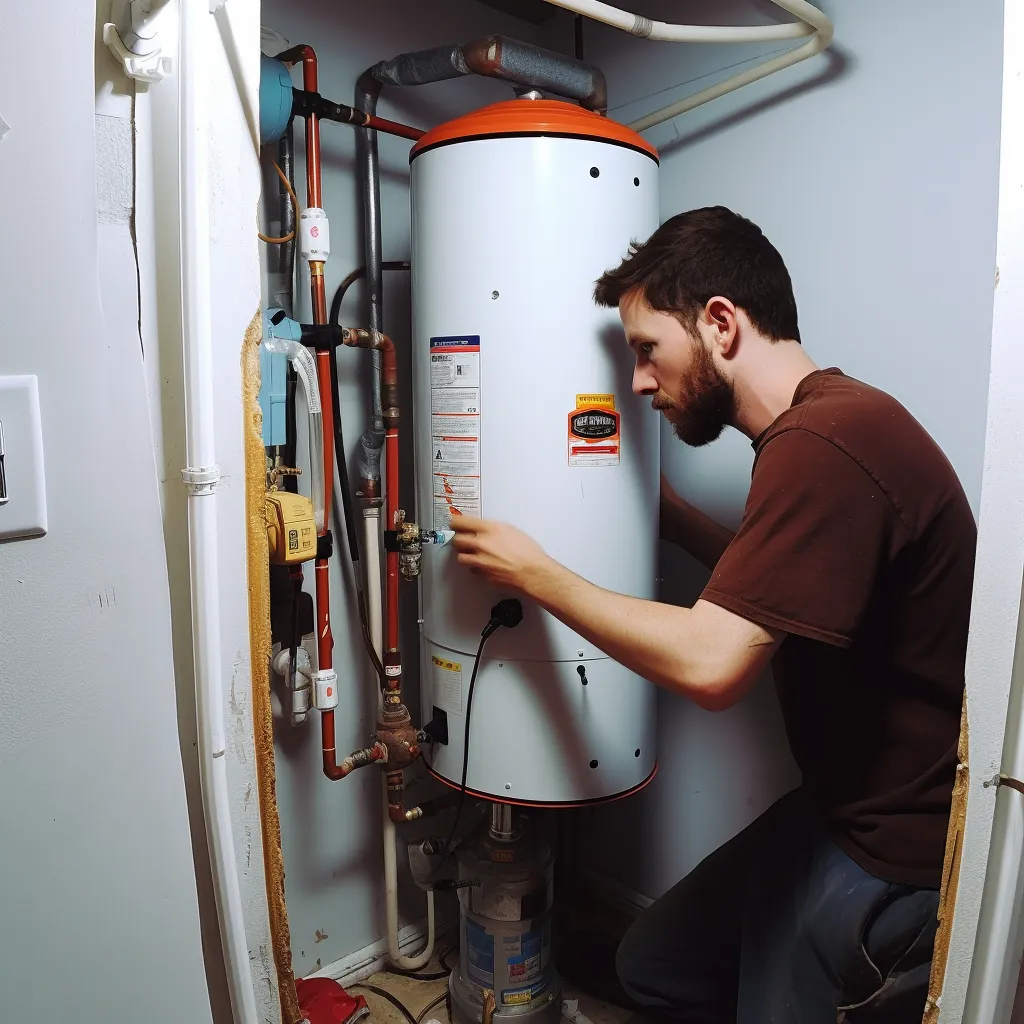
Keep the water heater and pipes free of sediment buildup
Regular inspections of your water heater tank are crucial for effective preventive maintenance and to minimize the chances of leaks and accidents. It is important to keep your water heater free from sediment accumulation, as this can lead to significant issues.

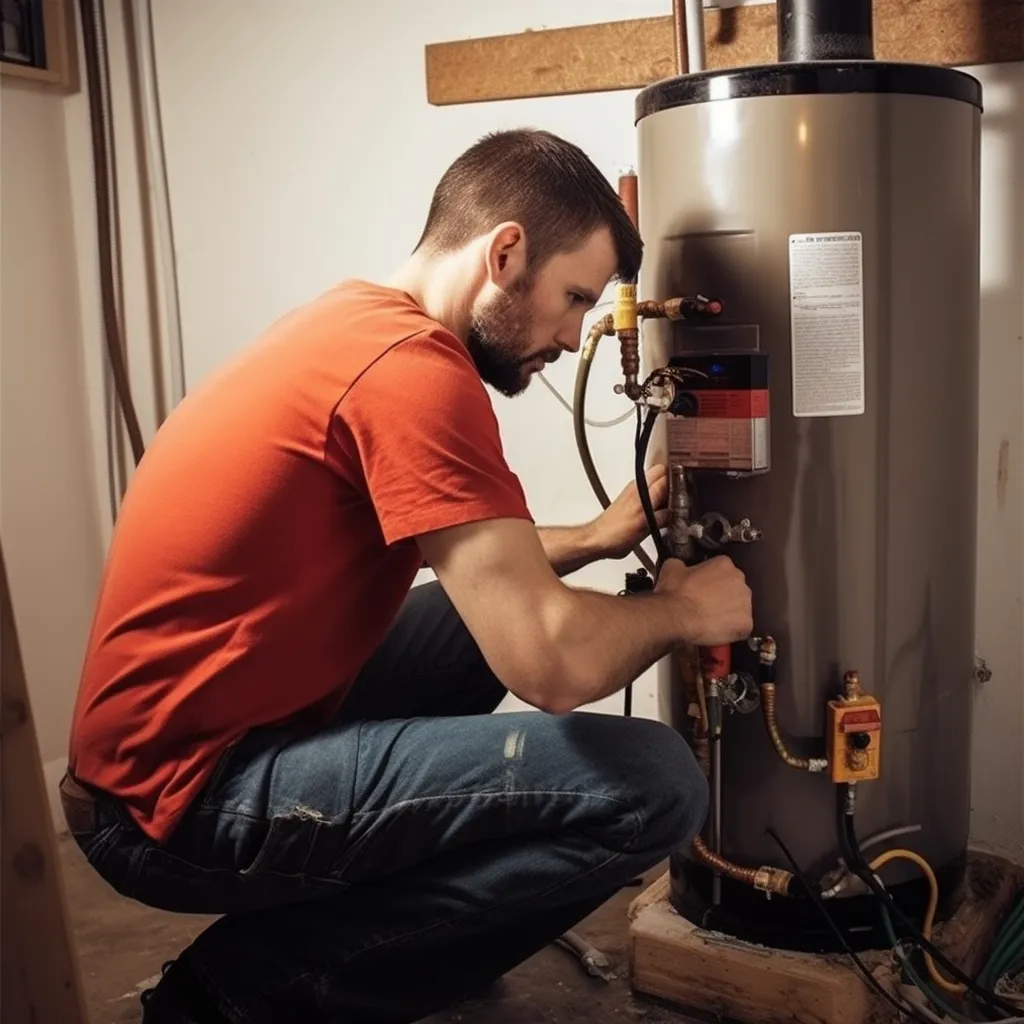
Keep the water heater burner assembly clean
Regular maintenance and cleaning of the burner assembly is crucial for optimal performance and longevity of your water heater. It is essential to keep the burner clean and free from debris and dust, as these can obstruct the flame and result in inefficient heating. Additionally, a dirty burner assembly can potentially cause damage to the system. By implementing a routine cleaning schedule, you can effectively remove any accumulated dirt and ensure the proper functioning of the burner assembly. This preventive measure offers several advantages. Firstly, it helps to avoid costly repairs that may be required due to clogged burners or damaged components. Timely removal of debris prevents issues that could compromise the overall operation of your water heater, allowing it to function smoothly and efficiently.

Check out the variety of water heater options available and learn how to keep each type in tip-top shape
To ensure a well-functioning water heater system, homeowners should have a good understanding of the various types of water heaters available and their respective maintenance requirements. Here are some key points to keep in mind:
Gas water heaters: It is beneficial to flush the tank annually to eliminate sediment buildup, which can affect its efficiency and lifespan.
Electric water heaters: Depending on the age and condition of the unit, it may be necessary to replace the anode rod. Regular inspection will help determine when a replacement is needed.
Tankless water heaters: These models should undergo descaling every few years to maintain optimal performance of the heating elements. This process helps prevent issues caused by mineral deposits.
Solar water heaters: An annual check is recommended to assess the functionality of panels and other components. This ensures that the system is operating efficiently and taking full advantage of solar energy.
Condensing water heaters: Annual maintenance checks are essential for these heaters to detect and address potential issues such as corrosion. Regular inspections help maintain their efficiency and extend their lifespan.
Smart water heaters: These may require software updates and firmware changes to ensure they are operating at their best. Staying up to date with the latest technology advancements is important for optimal performance.
Heat pump water heaters: An annual inspection is advisable to identify any excess heat or concerns. Detecting and addressing these issues early on can prevent further damage and maintain energy efficiency.
By familiarizing themselves with the different types of water heaters and understanding their specific maintenance needs, homeowners can effectively prevent potential problems. Taking the time to learn about their system and following proper maintenance practices will not only extend the lifespan of the water heater but also ensure it continues to operate smoothly.
Regenerate response

Troubleshooting tips
to help you identify
water heater problems
If you encounter problems with your water heater, such as insufficient hot water, temperature fluctuations, unusual sounds, or leaks, it's worthwhile to attempt some troubleshooting measures before reaching out to a professional technician. By examining the heating element, confirming the thermostat settings, eliminating sediment buildup, and carefully examining for any leaks, you might be able to identify and potentially resolve the issues at hand. These uncomplicated steps have the potential to save you valuable time and money in addressing your water heater concerns.

Benefits of hiring a licensed water heater professional
When facing a damaged or faulty water heater, it is essential to prioritize your safety and comfort. Opting for the services of a licensed plumber is the optimal choice to effectively resolve the issue. There are several advantages to relying on a licensed professional:
Expertise: Licensed plumbers possess the necessary knowledge and skills to ensure that the task is performed accurately. They have the expertise to handle various aspects related to water heaters, including installations, inspections, diagnoses, repairs, replacements, and maintenance, all executed with precision.
Comprehensive Services: Our team offers comprehensive water heater services. We provide certified professionals for the installation of new systems, conduct thorough inspections and diagnoses of existing systems, deliver reliable repairs, carry out efficient replacements, and offer regular maintenance to keep your water heater in optimal condition.
Troubleshooting and Support: Our experts are well-equipped to offer troubleshooting assistance and problem-solving support. Whether you are encountering issues with your water heater or require guidance in selecting the most suitable system for your home, our professionals deliver personalized advice tailored to meet your specific needs.
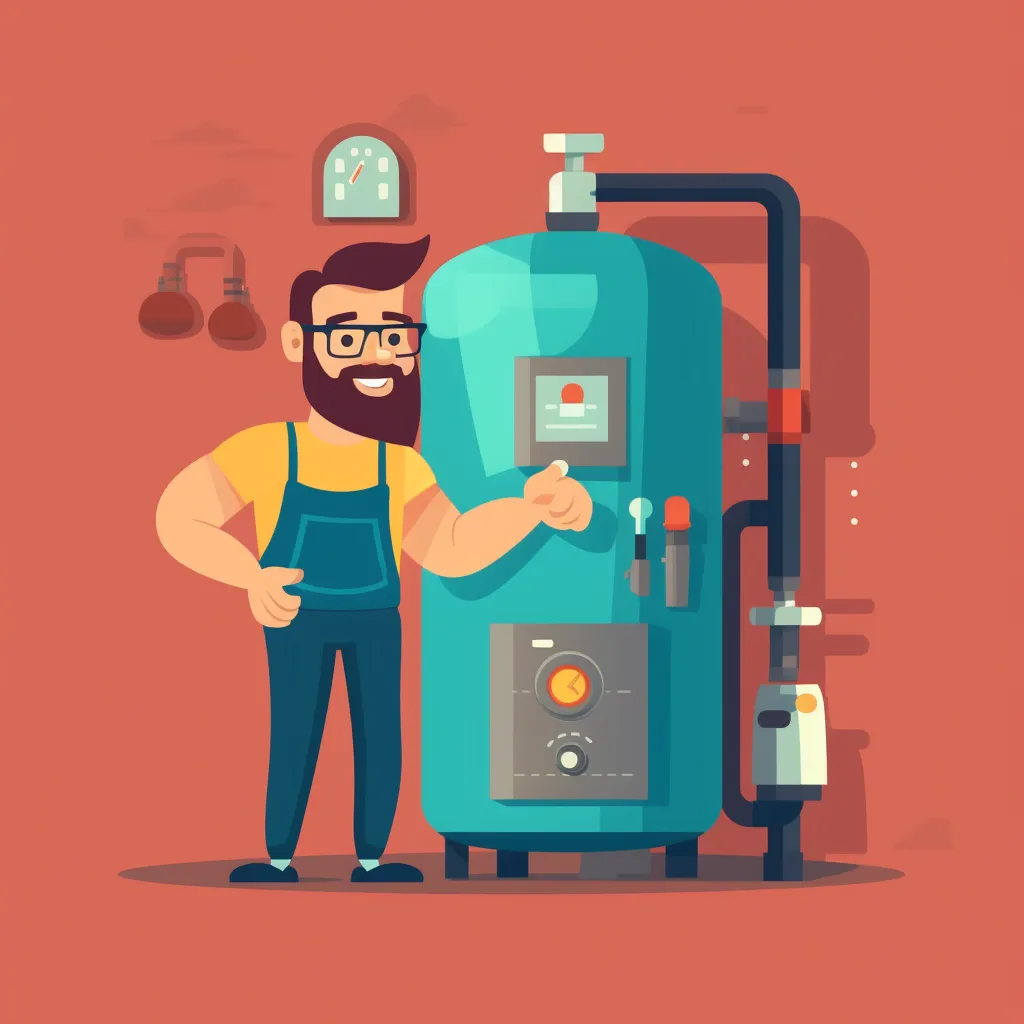
Research is important
Water heater maintenance is essential for both time and cost savings. By following a few key steps, you can ensure your water heater functions efficiently and avoids potential issues. Begin by monitoring the temperature, pressure, and connections regularly. This helps identify any abnormal readings or signs of leaks. Additionally, it is crucial to check for corrosion and sediment buildup, as these can hinder the performance of your water heater. Stay informed about the specific maintenance requirements for your water heater type. Different types may have unique needs, so it's important to be aware of them. If you encounter any malfunctions or are unsure about the maintenance process, it is always advisable to consult a licensed professional. Their expertise can provide you with accurate verification and expert guidance for effective water heater maintenance.
Contact Us
GET IN FULL TOUCH
PHONE: (801) 877-1421
EMAIL:
nathan@waterheaterlehi.com
Solutions Home Services
74 W 1625 S, Lehi, UT 84043
